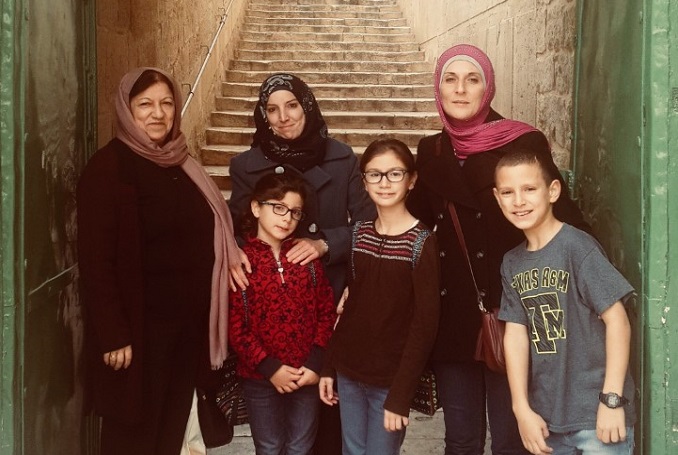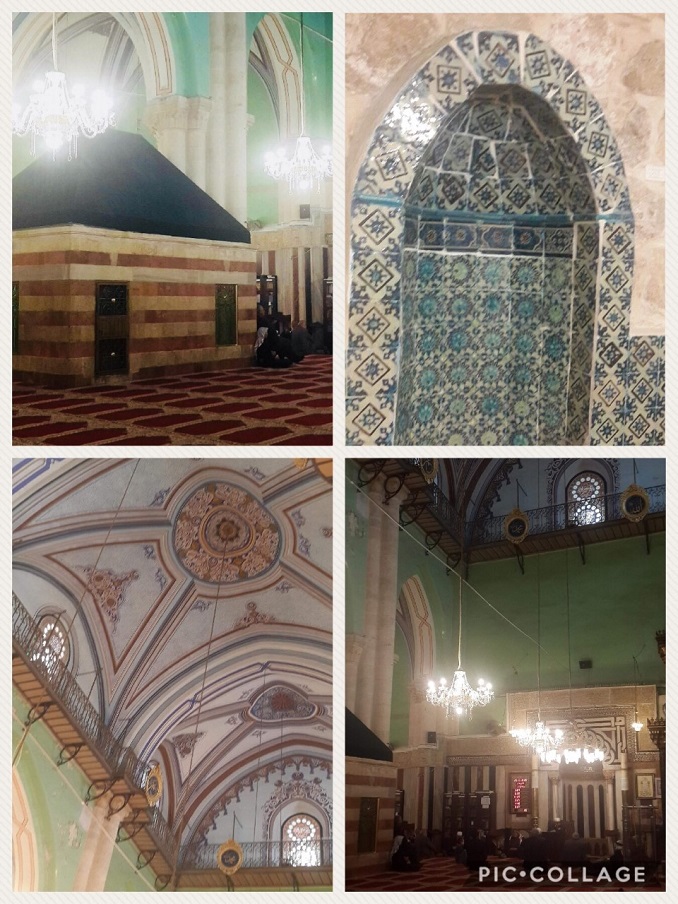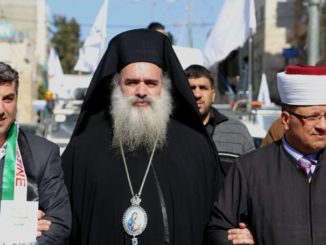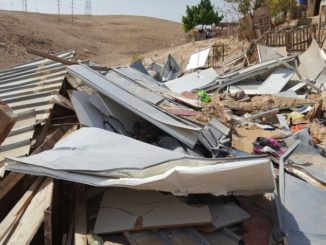
By Wasan Abu Baker
Hebron (Al-Khalil) in Arabic, literally means ‘The Friend’, and also refers to the Prophet Ibrahim (Abraham), who Muslims similarly describe as the friend of God and the father of the prophets Ishmael and Isaac, peace be upon them. Hebron is sacred to Muslims, Jews, and Christians and considered one of the most important and oldest cities in Palestine’s history dating back more than 6000 years.
I recently visited Palestine with my three children, and my children had a chance to see and learn about the deep pain in Palestine about the ongoing occupation. We visited cities including Jerusalem and Hebron, and many cities shared their stories with them. Stories of pain and longing for a day when life could become normal once again. I didn’t need to say too much, they saw and talked to many residents who told their stories.
On one of our trips from Tulkarem to Hebron after we crossed all of the Israeli checkpoints, we arrived during the Zuhr (afternoon) prayer. It wasn’t safe for the driver to drive into the old city, so he let us out and we walked into the old city of Hebron.
Hebron is well known for having had a thriving industry with many factories and a busy market where you could find leather, glass, and pottery back before the occupation of the city. We found some shops and purchased some crafts and memorabilia. The store owner was so grateful because nowadays, there are not many who come to Hebron for shopping with the closure of the main market street which was once key to the Palestinian economy.
The shopkeeper told us that it had been weeks since he had sold anything. I was very sad to see the Hebron this way, because I remembered it from my childhood as a very vibrant place with many shops, restaurants, and places to see.
We went in to the Ibrahimi mosque to pray, and afterwards the imam of the mosque gave me and the kids a history lesson on the mosque and the city of Hebron. There is a lot of historical and religious significance to Muslims and Jews in this place because it is called the cave of the patriarchs where prophets Abraham, Isaac, and Jacob and their wives; Sarah, Rebekah, and Leah are buried.
This sacred place was where a massacre of Muslims performing the dawn prayer was committed by a Jewish settler in 1994. The shooter killed approximately 29 Palestinian worshipers and wounded dozens. The occupation forces closed the Ibrahimi Mosque and the Old City for six months after the incident under the pretext of investigating. During this time they divided the Ibrahimi Mosque into two sections and imposed guardianship rules on the Palestinian inhabitants of the Old City.
Since that massacre, the Israeli occupation has annexed more and more of the city closing roads to Palestinians which are opened for Jews only. More and more Jewish settlers have arrived to take over homes and shops that were once the property of Palestinians. The Israeli occupation has installed cameras and electronic gates on all the entrances to Hebron, and prevents Muslims from taking any roads into the city. Hebron is the only Palestinian city with armed settlers living in such close proximity to Palestinian, making their lives unbearable. Since the Massacre, Hebron has been subject to an official policy of segregation impacting the Palestinians most negatively.
Al-Shuhada Street (in Arabic Martyrs Street) is the main road leading to the Tomb of Patriarchs. This road was once the central wholesale market of the Hebron region, but after the Massacre in 1994, Israel closed the street Palestinians and Al-Shuhada Street became virtually a ghost town. Since February 25th in 2010, Palestinian activists have organized an annual international demonstration called “Open Shuhada Street” attended by Palestinians from all political parties, joined by Palestinians, Israeli and international Pro-Palestine activists.
If it wasn’t for my US citizenship I would not have had a chance to visit this time. The one gate which does allow some traffic, mostly foreigners and Europeans there to support the Palestinian cause, is equipped with many high security measures.

–Wasan Abu-Baker is an American Activist with a Palestinian Origin. She is the Vice Chair of Corpus Christi National Justice for our Neighbors in Corpus Christi, Texas, a member of ABCD New Addition Team, and a staff writer for Kings River Life Magazine in the US. Wasan is an educator and a teacher. She earned her master’s degree in special education and graduated from St. John Fisher College in Rochester, New York. She contributed this article to PalestineChronicle.com.







